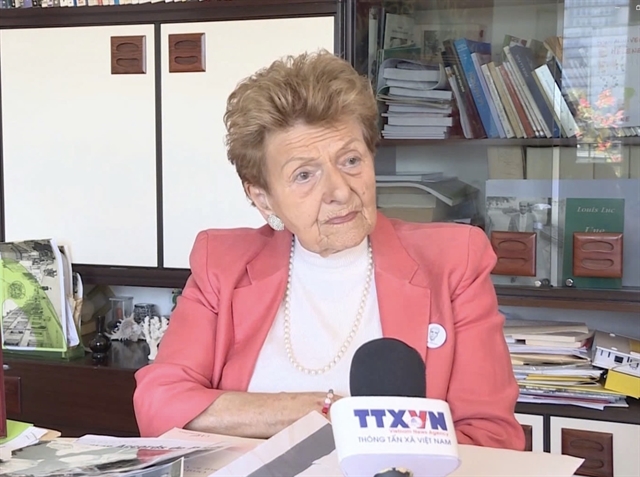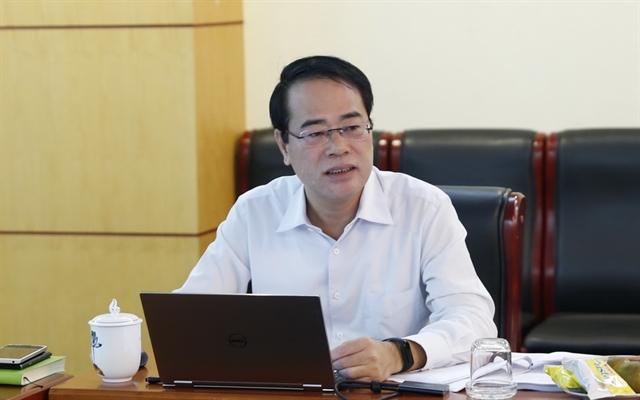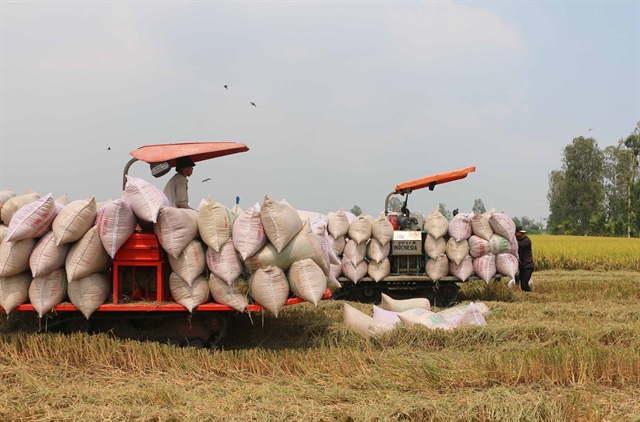 Opinion
Opinion

Director of the Department of Climate Change Tăng Thế Cường highlighted Việt Nam's significant involvement and substantial contributions to the global effort in responding to climate change and affirming its commitment to climate change management and ozone layer protection in a talk with Vietnamplus.

|
| Director of the Department of Climate Change Tăng Thế Cường. Photo tnmttuyenquang.gov.vn |
Director of the Department of Climate Change Tăng Thế Cường highlighted Việt Nam's significant involvement and substantial contributions to the global effort in responding to climate change and affirming its commitment to climate change management and ozone layer protection in an interview with Vietnamplus.
Could you share with us the key milestones in Việt Nam’s journey to address climate change?
Việt Nam is among the countries most affected by climate change. In recognition of this, the Ministry of Natural Resources and Environment established the Department of Meteorology, Hydrology and Climate Change in 2008 (now known as the Department of Climate Change) to enhance state-level management of hydrometeorology and climate change, ensuring it meets practical requirements.
From 2008 to 2013, there was a uniform establishment of hydrometeorological management from the central to local levels, providing a foundation for climate change response. During this period, the Department initiated projects to modernise forecasting technologies and the hydrometeorological monitoring network (2010-2012), implemented regulations on information dissemination for warning and forecasting natural disasters at sea, and developed guidelines for tropical low pressure, storm, and flood warnings.
Moreover, the Department has carried out numerous awareness campaigns to address climate change, fostering understanding among state management agencies, socio-political organisations, and the community regarding the causes and effects of climate change. These activities have focused on the impacts of climate change on the environment and social security, while emphasising the adoption of solutions to mitigate these impacts and enhance adaptive capacity.
From 2013 to 2017, Việt Nam continued to demonstrate its strong commitment to global climate change mitigation efforts. In line with the adoption of the Paris Agreement at COP21, Việt Nam took early action by developing its Nationally Determined Contribution, showcasing its significant efforts and responsibility in addressing global climate challenges.
During this period, the Department played a crucial role in advising the Prime Minister on approving the National System of Greenhouse Gas (GHG) Inventory and the Government on endorsing the Paris Agreement. Additionally, the Department issued plans for the implementation of the Paris Agreement on climate change, while the 11th Party Central Committee issued Resolution No. 24-NQ/TW, emphasising the proactive response to climate change and the strengthening of natural resource management and environmental protection.
Significant legislative advancements were made as well, with the National Assembly passing the Law on Environmental Protection in 2014 and the Law on Hydrometeorology in 2015, further solidifying the role and position of state management in hydrometeorology and climate change.
Through the concerted efforts of state management agencies, there has been a noticeable increase in awareness regarding the urgency and necessity of responding to climate change at all levels, sectors, and within society as a whole. Climate change response has become the responsibility of every citizen, garnering participation from the entire political system, spanning from the central to local levels.
From 2017 to the present, the Department of Climate Change has achieved significant milestones in state management of climate change, providing valuable advice to Party and State leaders in making strategic decisions. As a result, Việt Nam has been able to make substantial contributions to the global collective effort.
State management of climate change has undergone comprehensive institutionalisation, particularly with the inclusion of regulations in the 2020 Law on Environmental Protection. This law has incorporated provisions on climate change adaptation, greenhouse gas emission mitigation, ozone layer protection, carbon market development, greenhouse gas inventory regulations, integration of climate change response into strategies and planning, establishment of a national climate change database, and fulfillment of international commitments. Detailed guidelines for implementing the law have also been issued.
During COP26, Việt Nam, alongside 147 countries representing nearly 90 per cent of greenhouse gas emissions and over 90 per cent of global GDP, pledged to achieve net-zero emissions by the mid-century. Following the conference, the Prime Minister established a Steering Committee for implementing the COP26 commitments and issued significant strategies and decisions that are currently being implemented.
These milestones highlight Việt Nam’s integration with the world in addressing climate change, reaffirming its position and offering the "dual" benefits of accessing knowledge, technology, and green finance while facilitating economic restructuring and proactive climate change response.
Active participation in the global effort
At present, climate change remains a complex and pressing issue. How has the Climate Change Department been involved in the significant global fight against climate change?
Climate change response is a global endeavour, and both the world and Việt Nam have entered a new phase, presenting opportunities for Việt Nam’s deep and substantive involvement in global efforts.
The department has provided valuable advice to the Ministry, enabling the government and the Prime Minister to stay updated on new international trends and provide clear guidance on urgent and prioritised issues related to the implementation of the Paris Agreement and Việt Nam’s commitments at COP26. These include the development of the National Strategy on Climate Change until 2050, the Action Plan to Reduce Methane Emissions by 2030, and the updated Nationally Determined Contribution (NDC) for 2022.
Through international negotiations and cooperation, Việt Nam has gained recognition from various international partners and organisations for its dedicated efforts in combating climate change. Việt Nam is increasingly seen as a model for countries affected by climate change and is making significant contributions toward achieving the global climate goals.
How have the perceptions of the community, businesses, and individuals in Việt Nam changed due to these significant policies?
To date, most localities in Việt Nam have developed Action Plans to respond to climate change and have taken steps to implement the Paris Agreement, ensuring the fulfillment of Việt Nam’s commitments made at the COP26 conference.
Localities have actively encouraged and guided establishments within their jurisdictions to conduct greenhouse gas inventories in compliance with the law.
The business sector has also shown genuine concern for climate change by conducting greenhouse gas inventories and working towards achieving the "net-zero" emission target.
Furthermore, in recent times, communities and individuals have demonstrated a heightened awareness of climate change. Many climate change adaptation models, such as community-based adaptation, ecosystem-based adaptation, and smart adaptation models, have been implemented.
It is evident that climate change has become a focal point and an important agenda item for the leaders of the Party and the State. It is integrated into national development guidelines and decisions, playing a dual role as both a goal and a driving force.
As the head of the Department of Climate Change, could you please share the roadmap and key tasks for the upcoming period?
In the long term, the response to climate change is heading in a positive direction, instilling new hopes.
However, in the short term, as climate change remains complex and global response efforts have only generated expectations, it is crucial to continue actively addressing the negative impacts of climate change.
Therefore, the Department faces both opportunities and challenges. It is necessary to provide proactive advice and continually improve legal regulations pertaining to climate change response. The Department will actively participate in and contribute to various global and regional initiatives on climate change, serving socioeconomic development and promoting the transition to a sustainable, green, circular economy with reduced emissions. VNS


.jpg)

